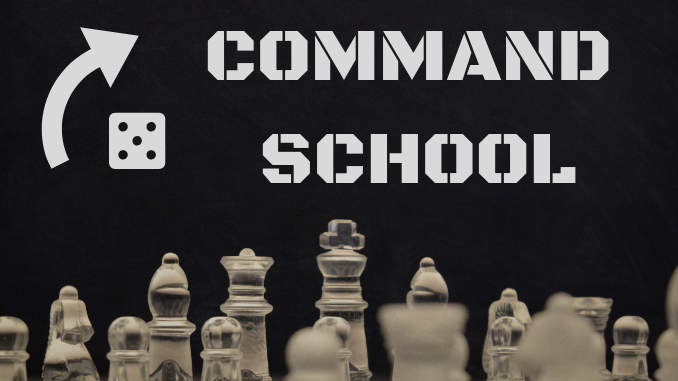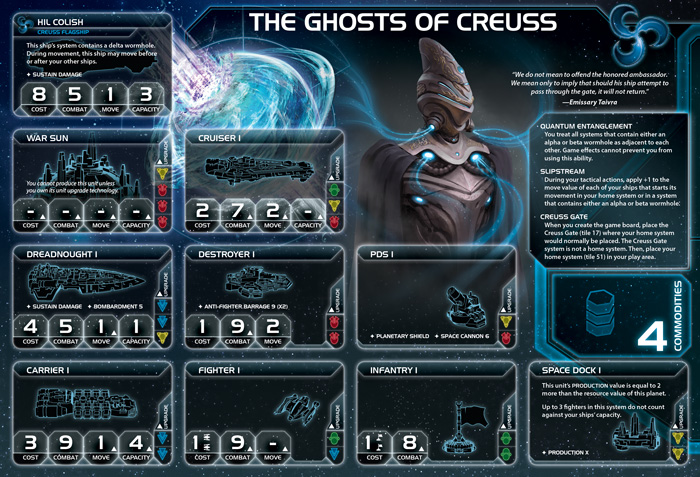
To defeat an enemy, you must know them. Not simply their battle tactics, but their history, philosophy, art. – Grand Admiral Thrawn, Star Wars Rebels Season 3 Episode 4.
I’d say this new series is clipping along fairly well. For those of you who have missed them, I have covered the differences between tactics and strategy, how to come up with options, and how to mislead your opponents. Today, I offer some tips on understanding and predicting your opponents. To win, you’ve got to know your foe.
Knowing Your Foe
It’s an old and common saying, but a true one, that “the enemy has a vote, too!” Often when planning anything, whether in statecraft, the military, business, or most importantly to us, gaming, it is easy to get sucked into developing a master plan in complete isolation of what one’s opponents might do. The most detailed plan in the world might be useless if it fails to consider how an opponent may disrupt it.
Some questions to consider:
- What objective or end state is my opponent trying to achieve?
- How does or would my opponent view the problem?
- How does or would my opponent view me?
- What are the key capabilities, assets, and vulnerabilities of my opponent?
- How does my opponent generally approach problems? What is their style?
- Any situation specific concerns.
This is by no means a complete list but I believe it’s a good start to thinking about your opponent without deep diving into the world of intelligence analysis.
What Will They Do
Once you begin to understand your opponent, it is time to try your hand at predicting what they might do. Just as you have an objective to achieve and develop courses of action (CoA) to do so, so too does your opponent. While there are perhaps countless ways they can go about that, and in a perfect world you would take the time to analyze all possible options, in a pinch there are two opponent CoAs of primary concern: the Most Likely (ML) and Most Dangerous (MD).
The Most Likely opponent CoA is just that, the CoA they are most probably going to use. This is based on your understanding of their world view, their objectives, their assets and vulnerabilities, and their style. Remember, this is their most likely solution to their own problem, not necessarily what will prevent you from solving your problem.
The Most Dangerous CoA also remains about how your opponent will achieve their objectives, but their method is determined by whatever would present the biggest problems for achieving your objectives while still achieving theirs. While lower probability than the Most Likely, this opponent CoA presents the biggest risk to your winning, and thus must be planned against.
Once you know the ML and the MD, you can work to ensure each of our own CoAs has a good chance of beating both of them.
It’s important to remember the principles and requirements of building your own course of action (CoA) applies equally to understanding those of your opponent. To be sure you have given enough thought to their CoAs, make sure each has FACES.
Explanatory Example: Twilight Imperium
Twilight Imperium, now in its 4th edition, is a tabletop 4X strategy game by Fantasy Flight Games. This turn-based game, reminiscent of Masters of Orion, sees a variety of factions with special abilities vie for control of the galaxy. One might expect the special abilities to drive faction strategy, and this is true, but how those abilities are used is heavily affected by player style. Have a look at one such faction:

Copyright Fantasy Flight Games.
To explain the concepts I’ve discussed in this post, I’ll offer a few quick facts of how two regular fixtures in our Twilight Imperium group operate and then give a brief overview of what likely approaches you might see if each was playing as the Ghosts of Creuss.
Chris (yours truly!)
- Likes to rush in RTS games.
- Likes delicate maneuvering and controlling smaller, more precise forces.
- Feels conflict can be limited, ie. can fight with an opponent over one system without necessarily widening the war.
Most Likely – “Shadow Dancing”:
Given the above, you might expect me to use the Ghosts of Creuss wormhole mobility early and often, especially if wormholes are spread throughout the galaxy. You might expect me to double down on the Slipstream ability, perhaps by focusing on cruisers to extend my fleet’s reach up to three hexes. Expect early game harassment, threats, and extortion aimed at gaining resources and control of strategically advantageous systems which will prove useful in the late game.
Will
- Likes to turtle and steamroll (very defensive early and mid game, build up economy, then crush in late game) in RTS games.
- Likes to build up massive forces and smash them across the board.
- Feels conflict should be all or nothing, ie. aim for peace but respond to attacks with overwhelming force and escalation.
Most Likely – “The Return”:
Keeping the above in mind, you’d probably expect Will to make minimal early game moves to gain resources before hunkering in to conduct a major build up. He might try to get good trade deals with his solid amount of commodities, thus bolstering income. He’ll probably focus on building powerful ships and his flagship, and will likely try to steamroll across the board in the late game by warping reinforcements to the front line using his flagship ability.
Conclusion and Homework
I hope this provides some insight into how you can understand and begin to predict your opponent. At the very least, it has divulged some classified information about me and another member of my gaming group.
For homework, think about one of the members of your gaming group, or your opponent from the last game you played, and ask yourself the questions listed above. How do they approach gaming and games? What is their style? How do they perceive you? Think about what would happen if you replayed a game you recently played with them. What would their most likely strategy and tactics be?
Until next time, class dismissed.
